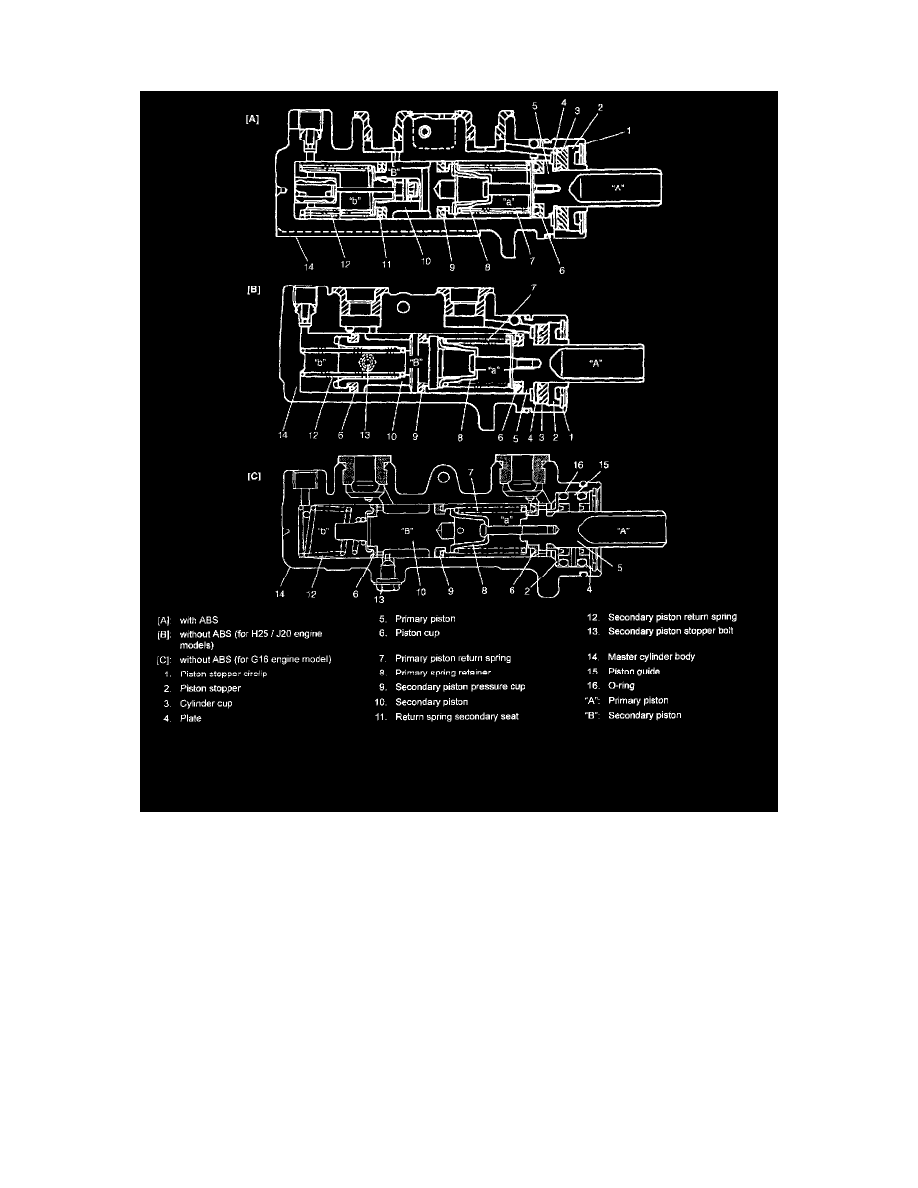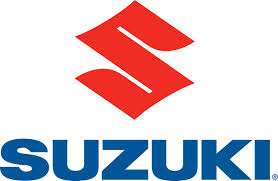Vitara 2WD V6-2.5L (2004)

Brake Master Cylinder: Description and Operation
Master Cylinder Assembly Construction
The master cylinder has two pistons and three piston cups. Its hydraulic pressure is produced in the primary ("a" in the figure) and secondary ("b")
chambers.
The hydraulic pressure produced in the primary chamber ("a") acts on the front (for vehicle without ABS, rear) wheel brakes.
Also, the hydraulic pressure produced in the secondary chamber ("b") acts on the rear (for vehicle without ABS, front) wheel brakes.
NOTE: Replace all components included in repair kits to service this master cylinder. Lubricate rubber parts with clean, fresh brake fluid to ease
assembly. Do not use lubricated shop air on brake parts as damage to rubber components may result. If any hydraulic component is removed or brake
line disconnected, bleed the brake system. The torque values specified are for dry, unlubricated fasteners.
